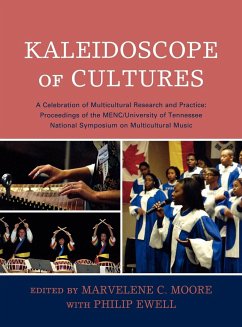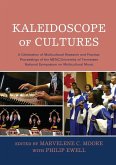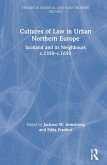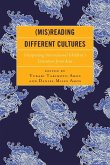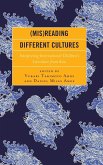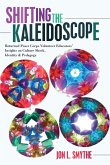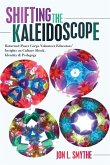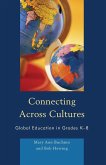This book features lively speeches, engaging workshop presentations on a variety of topics (including making ethnic instruments), and extensive reviews of vocal and instrumental multicultural music literature from the 2006 and 2008 National Symposia on Multicultural Music.
Hinweis: Dieser Artikel kann nur an eine deutsche Lieferadresse ausgeliefert werden.
Hinweis: Dieser Artikel kann nur an eine deutsche Lieferadresse ausgeliefert werden.
A compelling and exciting view of multiculturalism in music education! Marvelene Moore has compiled essays from research sessions and lessons plans from workshops from the 2006, 2008 symposia into a unique, practical, and highly inspirational guide for music teachers. This book brings together innovative ideas and connects theory and practice to introduce music educators to the various music cultures of the world. A must-have for music teachers at every level! -- Polyvios Androutsos, music education specialist/instructor, Department of Music Science and Art, Macedonia University, Thessaloniki, Greece Since the 1967 Tanglewood Symposium, the music education profession has engaged in an intense and on-going debate about the nature of multicultural music education. Marvelene Moore?s innovative series of Multicultural Symposia at the University of Tennessee has continued to broaden and enlighten this dialogue. Kaleidoscope of Cultures give music teachers an in-depth look at some of the most interesting philosophical discussions in the field, and also delivers practical classroom strategies from thebest in the field. Moore?s book is a valuable contribution to the continuing exploration and understanding of multicultural music education... -- Will Schmid, past president, MENC: The National Association for Music Education Marvelene Moore's approach to multiculturalism in music education is as rich as it is very real. Biennially, she assembles an inspirational case of teachers, performers, and scholars who think and act musically-and multiculturally. This compendium of thoughtful essays and straightforward lessons, from those assembled at the 2006 and 2008 symposia, are a beautiful reflection of the way forward to more finely honed music education practices in our time of multi-splendored diversity. -- Patricia Shehan Campbell, Donald E. Petersen Professor of Music, University of Washington This publication gives insight into the richness and breadth of work that has emanated from the National Symposium on Multicultural Music. Marvelene Moore and the symposium have stood as a beacon for the advocacy, development, and understanding of multicultural music. The publication of papers from the 2006 and 2008 Symposium provide us with an invaluable resource to consider and apply across our various music education situations. The collection presents challenging yet practical ideas and applications that assist with the development of an appreciation and understanding of our culture-how ever we define it-and that of others. -- David Forrest, associate professor of music education, Royal Melbourne Institute of Technology University Australia Since the 1967 Tanglewood Symposium, the music education profession has engaged in an intense and on-going debate about the nature of multicultural music education. Marvelene Moore's innovative series of Multicultural Symposia at the University of Tennessee has continued to broaden and enlighten this dialogue. Kaleidoscope of Cultures give music teachers an in-depth look at some of the most interesting philosophical discussions in the field, and also delivers practical classroom strategies from the best in the field. Moore's book is a valuable contribution to the continuing exploration and understanding of multicultural music education. -- Will Schmid, past president, MENC: The National Association for Music Education Proceedings of the 2006 and 2008 symposia assembling international, national, and local clinicians, performers, and researchers recognized as experts in the music of their cultures, to provide instruction for undergraduate and graduate students, university professors in multicultural music and musicology, and public and private school music teachers. The text includes keynote speeches from 2006 and 2008, four research papers, 11 workshop presentations, and three appendices containing sample lesson plans, directions for construction of additional world instruments, and a list of video clips of performing groups on the MENC website. A sampling of topics: music majors' levels of familiarity with 15 musical styles, how studying multicultural music can oppose prejudice, approaching multicultural music education through the Canarian transmission model, bamboo Angklung for the classroom, Korean mask dance drama, world instruments for the general music classroom, and research, resources, and materials for teaching the music of black cultural traditions. Book News, Inc.

